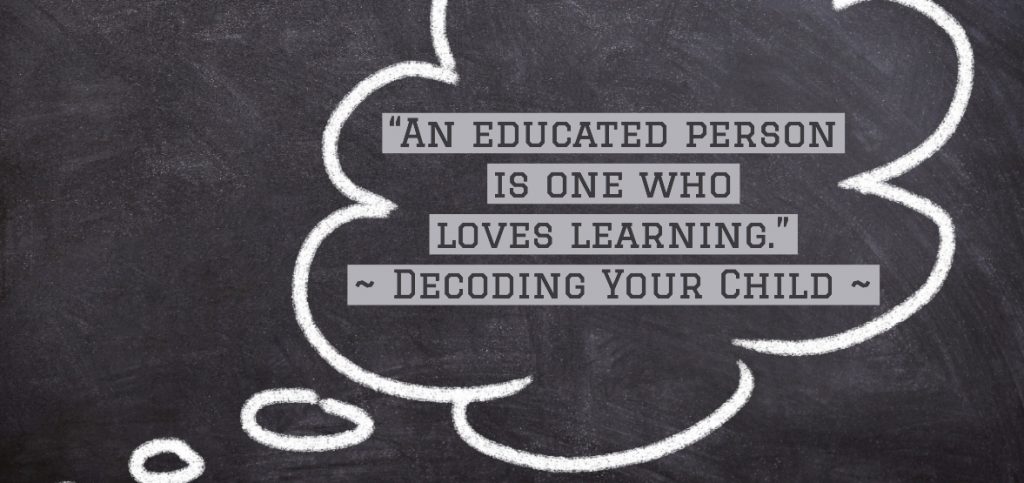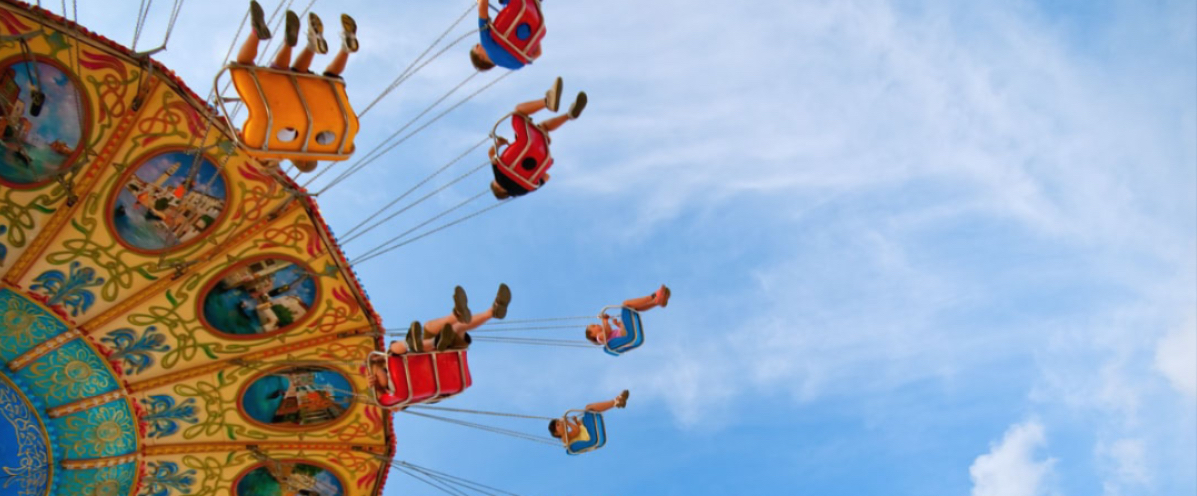(As shared on Decoding Your Child Facebook post on 12 June 2019)
The June holidays are here and I keep seeing advertisements and flyers about holiday “camps” to brush up on subjects. Truth be told, I have been extremely tempted. I have even put in a request for a 3-day Chinese show-and-tell enrichment class at my 6-year-old’s Chinese school. Thankfully, they did not have enough kids to start the class. But it made me take a step back to analyse my own behaviour.
As parents, we are all concerned about getting the best education for our children. Most of us trust our children to the school system and “enhance” their education with private tuition, holiday camps etc. Many of our children, like my youngest, are in state-run schools while some children are in private institutions. Few are homeschooled. When our children are in the system, regardless of whether it is public or private, they end up running the hamster wheel to follow the system and “game” it so they can excel in it. My girl is rather weak in Chinese, so naturally, I look for enrichment in Chinese for her during the school hols. Many parents do the same and who can blame them?
But let us take a moment to pause and reflect. What does education mean? What qualities does an educated person have? Is it someone with straight As, a degree, a diploma? Or is it someone with a high paying job? What does “being educated” really mean?
Being a Singaporean myself, getting an education was synonymous with going to school (or so I thought). So 12 years ago, when my then 5-year-old son begged me to keep him at home so he could learn, I had no clue what to do and had no choice but to research into homeschooling. It took more than a year of research before I dared embark on the journey. The responsibility of a homeschooling parent is extremely heavy. Our children’s future depends on how we educate them. So I had to think long and hard about what education meant and what the “end product” of education would look like. I believe if my son had not pushed me into homeschooling him, I would still be blissfully ignorant about what education means to me and just let the schools do what they were designed to do.
So 12 years ago, I went to read up the history of education. (Here is a summary similar to what I had learned: https://www.psychologytoday.com/…/2…/brief-history-education). It reshaped the way I looked at education and made me think about what a truly educated person would be like. Here is an article that has a list what makes one “educated” (https://daringtolivefully.com/educated-person). It is not a prescriptive list, but a good one to get us thinking about the qualities of an educated person.
Would I consider myself educated? Not totally, but somewhat. What about my teens who have been homeschooled? Not there yet too. I realised through my research that education is a lifelong process. There is no end-point. The main thing as a home educator, I concluded, was to ensure my children would continue loving and pursuing knowledge, that to them, learning doesn’t stop after a diploma, degree, or a certain age.

Amongst the many qualities of an educated child, the one quality that is particularly important to me is that of having a critical mind. To me, an educated person is one who has discernment. I feel that having the ability to ask, “why?’ or “why not?” as well as the ability to come up with a good response to those questions is important so we do not end up doing things blindly.
So some questions worth asking are: Why do schools do what they do now? Why must the children learn about magnets or the life cycle of a frog or chicken? Why do they need to know differentiation or integration? Why must they memorise the dates of the wars and who fought whom where? Not only that, why do they have to learn those stuff at the particular age they are taught? And why can’t our children be exposed to science concepts earlier?
What I observe now is the force feeding of information to our children. It’s a “you-need-to-know-this-NOW-to-score-well-so-memorise-it” methodology. It’s a “this-is-the-answer-key” or “use-these-key-words-to-score” type of “education”. Worst of all, children are being taught to use different answers in different settings: one that the schools accept, and another that PSLE accepts (it seems some schools do not accept what PSLE markers accept. Go figure…)
Is this what education is supposed to look like? Is an educated person one who can memorise answer keys and score the highest points? Is it the schools’ fault? Or society’s?
What if we re-look education?
What if we help our children UNDERSTAND why what they are learning is RELEVANT? Telling a P1 or P6 student their PSLE score will affect their future is TOOOOO far into the future for them to grasp. Why is learning about the life-cycle of a frog important? Why is Math important? Is it really the formulae we memorise that matters? Who uses differentiation or integration after graduation anyway?
Would it make a difference to our children if we explain what matters is the thought processes we train our minds to have when we need to understand the content? I love what is written in the curricula that MOE has made available for public. The reasons for why the children are learning such and such are fabulous, but how much of the “why” has been transmitted to the children, or to parents so we know how to support our children’s learning without being “kiasu” (afraid to lose)?
Maybe with a bit of nudging in the right direction, we, parents, may start thinking about what other things would make our children more “educated”.
Would learning about human psychology even from P1 or K1 help them relate to others better and build better friendships? Would learning about collaboration be more effective than competition? Would allowing the making of mistakes so our children understand that is part and parcel of learning be more “educational” than instilling the fear of making mistakes? If so, how do we incorporate that into their education without overloading their ever-ballooning curricula?
For me, I know the pitfalls of school-going kids. Many will start dreading school and learning. Most will dread making mistakes, or worse, failing. Hence, I will strive to ensure my little A, who is currently in the public school system, to not become that. I’ll continue holding the end in mind: what it means to be an educated person, and help shape the way she sees education and her experience while getting an education in school.
Education…. What does it really mean to you? How do you want your children to feel while being educated? How would you like your children be after they get their diploma, degrees etc? Are those paper qualifications necessary to prove they are educated?
I am sorry I do not have any “model” answers. But I hope those questions will help trigger some thoughts to augment your view of what education means and how you can help with the education of your child(ren).
As always, Happy Parenting!!

